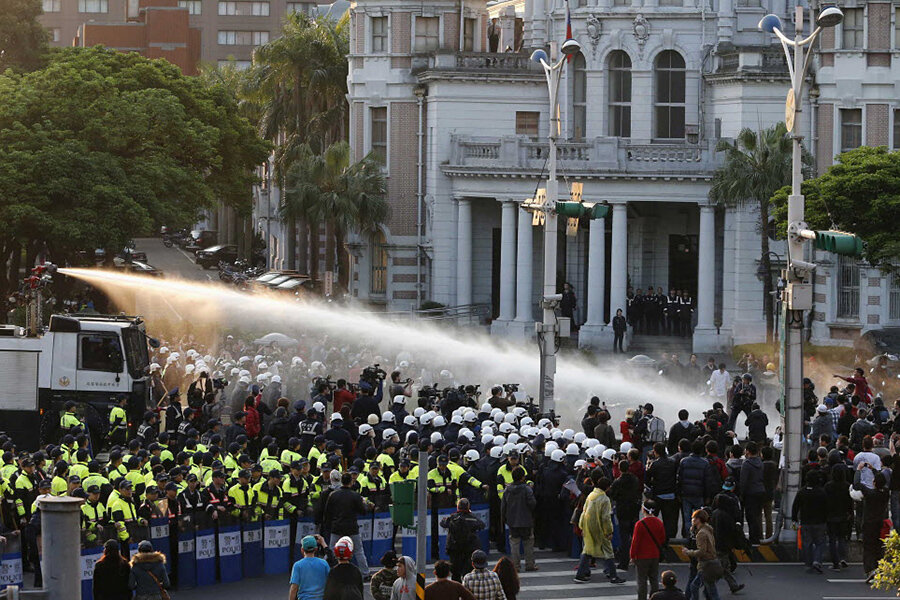Beginning in March 2014, student demonstrators in Tapei, Taiwan occupied a parliament building in protest of a controversial trade pact with China. As with similar movements in Egypt and Syria, they worried about the pro-Beijing government’s response, wondering if they would shut off Internet access in a bid to curb the protest.
During the 23-day occupation, they began using a newly-released app called FireChat, which can send messages from one phone to another even without an Internet connection. Using a so-called mesh network, the app works by sending a message from phone to phone until it reaches its destination, meaning that the more people use it, the better it functions.
"We launched FireChat and three days later we saw it become the No. 1 app in Taiwan," Christophe Daligault, head of sales and marketing for Open Garden, the San Francisco-based firm that created the app, told the Monitor in May 2014.
Unlike similar movements in Syria and Egypt, the movement never resulted in a government crackdown on Internet access; the students eventually left the parliament building in March after reaching an agreement with Speaker Wang Jin-pyng that he would not hold a debate on the trade pact until legislation was in place that included broader oversight of all deals with China. But for protesters, the use of FireChat proved to be an invaluable communication tool.
"We were pretty much forced to use it almost at the start of the protests because there were just so many people in the protest areas, it made the cell network so slow," Pamela Lam, a pro-democracy activist who used the tool in what became known as the "Occupy Central" movement in Hong Kong, which followed the student protests, told CNN in October 2014. “FireChat doesn't need data to work -- a lot of people were downloading it.”
In July 2015, FireChat introduced a feature many users clamored for: offline private messaging. That could help solve a problem that plagued protesters in Taiwan and Hong Kong – local police nearby could also detect their movements since they were within the 30-foot radius used by the app. Mesh networks, observers say, could also provide a shelter for protesters concerned about larger social media sites tracking users’ data and possibly turning it over to the government.
[Editor's note: This section has been changed from its original version to clarify the differences between the Taiwan and Hong Kong demonstrations.]







